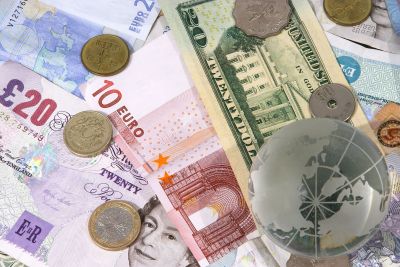The Capital Account and Reserve Account: Money Flows for Capital Investments
Deficits and surpluses in nations Current Account are financed and spent in it Capital Account. What is this Capital Account? In the broadest definition, the Capital Account is the difference between money flowing in and out of the country as a result of capital investments. The Reserve Account is a part of the Capital Account.

This article focuses on the Capital Account and Reserve Account. We will clarify some of the different definitions around Capital Account and explain what both Accounts imply.
This article is a third in a series of five that explains the economic concepts of Current Account, Capital Account and Reserve Account and how they relate with foreign debts and public deficits. If you are interested to get an understanding of how the economy works, how money flows between nations and its impact on currency trends and the economic well-being of nations, please read on.
If you just want to know more about stock market timing signals that tell you when to buy or sell your funds, please read here more about Stock Trend Investing.
Capital and Reserve Account
The Capital Account consists of two components:
1) Capital Account (investments)
2) Reserve Account
In a formula:
Capital Account = Capital Account (investments) + Reserve Account
The Reserve Account is the “Change in Central Bank Reserves” or the “Current Account minus Capital Account (Investments)”. This is the difference between money flowing in and out of the country as a result of selling or buying foreign currencies by the Central Bank.
Capital Account Components
The Capital Account (investments) is the “Increase in foreign ownership of domestic assets (liabilities)” minus the “Increase of domestic ownership of foreign assets”. The Capital Account (investments) has three components:
1) Direct Investments (incoming and outgoing)
2) Portfolio investments (incoming and outgoing)
3) Other investments including government borrowing (incoming and outgoing)
A Capital Account (Investments) Surplus means that during this period more money has flown in than gone out due to higher net investments from foreigners coming in than net investments going abroad.
The Reserve Account has a surplus when the Central Bank is selling more foreign currencies than it buys, having a net inflow of domestic currency. It has a deficit
The overall Capital Account has thus a surplus when more money is flowing into the country than out of the country (more foreign currency is used to but domestic currency than the opposite) due to capital investments and selling for foreign currency reserves. This surplus finances the Current Account deficit.
Capital Account Definitions Confusion
Regarding the used Capital Account term, note the following:
- The IMF and related institutes use the term Capital Account for something that is a subset of the definition that we use here:
Capital Account (our definition) = Capital Account (IMF) + Financial Account (IMF)
- Capital Account (investments) is not a term that is commonly used in the economic literature. We have introduced that term here to show the components of the Capital Account and the difference between Capital Account and Reserve Account.
- In some articles the term Capital Account sometimes excludes the Reserve Account. Be aware what is referred to when reading about the Capital Account.
Once our next article in this series is published, click on “next” below for an explanation of the components of the Capital Account and the corresponding money flows.
The following articles from this series may also have your interest:
The Current Account and How Money Flows
The Balance of Payments and Current Account Deficits and Surpluses
These articles could also be of interest to you:
History of US federal debt as percentage of GDP: Why is this now important?
Debt or Deficit: are we into trouble compared to other countries?
Factors contributing to Economic Growth and Causes for Recession and Economic Crisis
Why is the Japanese Yen so Strong?
Next & Previous Blog Post
- ‹ previous
- 52 of 174
- next ›


